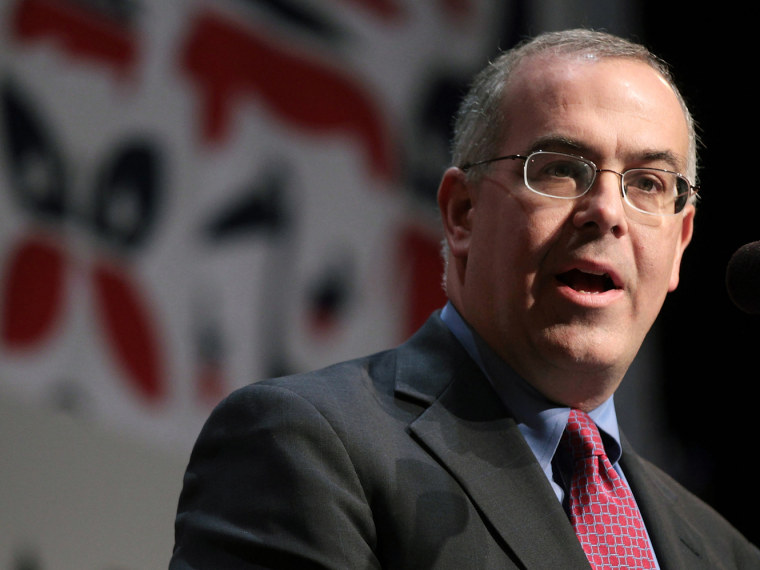The New York Times' David Brooks, a center-right pundit, has made no secret of his concerns about the modern Republican Party. In October, the columnist wrote a piece condemning today's GOP for abandoning conservatism for what he identified as "right-wing radicalism."
Condemning the likes of Ted Cruz and the House Freedom Caucus, Brooks added, "Really, have we ever seen bumbling on this scale, people at once so cynical and so naïve, so willfully ignorant in using levers of power to produce some tangible if incremental good? These insurgents can't even acknowledge democracy's legitimacy.... These figures are masters at destruction but incompetent at construction. These insurgents are incompetent at governing and unwilling to be governed."
Three months later, it appears many of those same Republicans are in a powerful position in the party's presidential nominating contest, which has pushed the New York Times writer just a little closer to wholesale apoplexy. After writing yesterday that Ted Cruz or Donald Trump presidency might "genuinely endanger" the United States, Brooks made an appeal to his allies in the party.
Governing conservatism has to offer people a secure financial base and a steady hand up so they can welcome global capitalism with hope and a sense of opportunity. That's the true American tradition, emphasizing future dynamism not tribal walls. There's a silent majority of hopeful, practical, programmatic Republicans. You know who you are. Please don't go quietly and pathetically into the night.
I can understand Brooks' panic. What I can't understand is who he's referring to?
Where, exactly, is this "silent majority of hopeful, practical, programmatic Republicans"? Are they to be found on the presidential campaign trail? In the halls of Congress? In state legislatures?
Are they lurking in the Republican base that has propelled Trump and Cruz to the front of the GOP pack?
Brooks didn't identify any of these "hopeful, practical, programmatic Republicans" by name, which makes me wonder if even he can point to a name or two.
Indeed, as a quantitative matter, the idea that there's a governing majority lurking just below the surface, is very hard to believe: "The most conservative Republicans in the House 25 or 30 years ago would be among the most liberal members now."
The uncomfortable truth may be that the sensible Republican majority Brooks is looking for remains "silent" because it does not exist.
